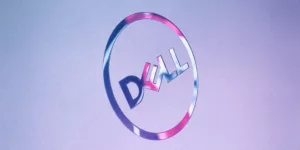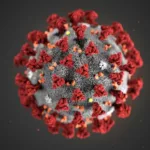I’m at Dell Technology World this week. Michael Dell spent the first day talking about strategy, engaging with some of Dell’s more powerful customers like GMC and USAA, and closed with the amazing work Dell is doing to help Ukraine.
Vice-Chairman and Co-COO Jeff Clarke focused on the product launches and near-term Dell advances. Clarke opened with the amazing speed of advancements and trends redefining the technology industry and the world. He then showcased the Dell Workshop where there was a huge mystery box on one side and a robotic dog. Interesting side story: At Dell World around five years ago, a guest speaker said that robotics would be the next big thing, but Dell did nothing in robotics subsequently. Or so we thought. Seeing a robotic dog in the Dell workshop might indicate that Dell didn’t ignore that prediction after all, but was simply unwilling to talk about it until now.
Let’s go over the big thoughts from Clarke’s talk.
PCs
Even during the PC downturn of a few years back, Dell argued that PCs weren’t going away, and would not only resurge but become even more critical to work in the future. Based on Dell’s financials, it seems that the market agrees. During the pandemic, PC sales went through the roof. It is also interesting to note that during these massive supply chain problems, Dell’s Logistics Services division has stepped up to enable Dell’s teams to work around the supply deficits to protect Dell manufacturing from these problems.
One of the coolest things at Dell World this year is Concept Luna. It’s a laptop designed to show just how far you can go to create a truly sustainable laptop product. They featured it on stage, and I got a chance to see it in person while at the show. Not only can it be dismantled very quickly, but it can be upgraded rather than replaced. It uses several technologies like plastics based on plants that degrade safely in the environment.
Another example was a new Alienware offering that gives a gamer a competitive advantage (they showcased Forza 5 on the stage), and the Alienware physical designs continue to impress.
Easily accessible and fast infrastructure
Clarke also highlighted Dell’s enterprise storage portfolio designed for multi-cloud support targeting the hyper-scaler market at the high end. Key advancements are advanced cyber security, massive scalability (according to Dell, it’s 30x better than competitors), automated end-to-end management and 40 to 1 fast compression, and non-disruptive data-in-place upgrades, along with a long list of other features.
Other interesting capabilities were significant upgrades to existing products with no extra charges to existing customers and heavy VMware integration where needed. Typically, storage, by intent, isn’t very exciting because, when it gets exciting it generally is a bad thing, but Clarke found a way to make storage exciting while not being a bad thing. The level of implied flexibility that he noted was almost unbelievable: highly automated, extremely scalable and configurable, upgradeable, and very secure. What’s not to love? The audience certainly seemed excited, (most of the folks here this week are IT practitioners), suggesting Clarke’s announcements hit them where they lived and in a good way.
One of the interesting things that Dell shared that the audience seemed to really appreciate was that even with all of the advancements and product improvements, user incidents have dropped significantly. Loads have shifted from 80% of the time being spent on administration across Dell’s infrastructure offerings to 25% administration, allowing IT developers to do more of what they want to do: develop.
One of the things Dell implied was that the improvements that Dell has implemented in infrastructure has massively improved Dell’s ability to respond to its own internal clients by speeding up their ability to execute while lowering operation costs significantly. This makes Dell far more competitive over time. I often think that companies that make products in this class need to talk about how they are using them to show how they not only use their own products, but how this use has been validated by Dell’s public financial performance numbers, which have been exceedingly strong for the segment.
Wrapping up:
Clarke closed by building on the message that, thanks to Dell Technologies, Dell developers are doing more with their time to advance the company’s interests, as opposed to just keeping it running, than ever before. He mentioned that these advancements don’t just benefit Dell, but change and advance industries. Boeing came on stage (virtually) to talk about how it is massively changing how it develops aircraft using Dell’s latest technologies. Boeing can do far more in simulation to identify problems and come up with advancements before it ever builds the aircraft, which reduces development time and results in better and potentially safer aircraft. As a result, Boeing can spend more time assuring the result, and Dell is working with it to improve Boeing’s performance, trust, and capabilities.
As I write this, today is Dell Technologies’ 38th birthday. Jeff Clarke has been with the company for 35 of those years and I’m wondering just how much more amazing this company will become over the decades to come.








